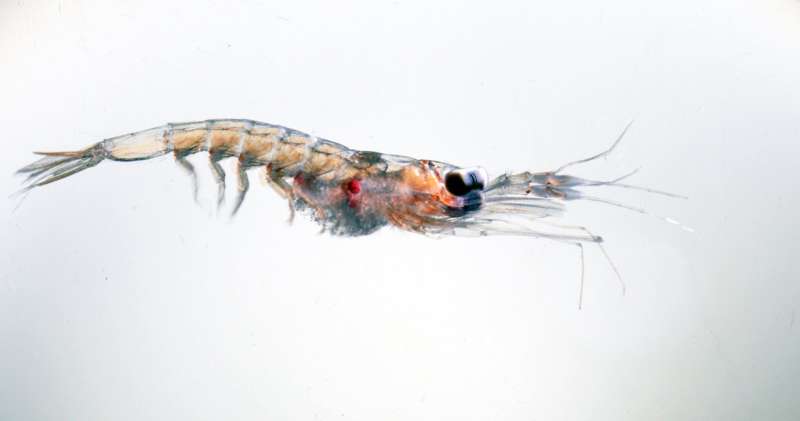Lower oxygen levels to impact the oceanic food chain

Tiny fish known to survive where most marine life could not, may no longer be able to thrive under diminishing oxygen levels.
A new study published in Science Advances finds just the slightest change in oxygen level could have tremendous ramifications on the food chain. Rising temperatures are causing mid-water regions with very low oxygen, known as Oxygen Minimum Zones (OMZs), to expand in the eastern tropical North Pacific Ocean. While some organisms in certain regions may be able to adapt, researchers found those living in OMZs likely cannot as they're already pushed to their physiological limits.
"These animals have evolved a tremendous ability to extract and use the small amount of oxygen available in their environment," said study author Brad Seibel, Ph.D., professor of biological oceanography at the University of South Florida College of Marine Science. "Even so, we found that natural reductions in oxygen levels of less than 1% were sufficient to exclude most species or alter their distribution."
Researchers looked at many different types of marine zooplankton, which includes fishes and crustaceans that are essential to the marine food chain. Cyclothone, for example, is among the most abundant vertebrates in the world, while krill are important in the diets of fishes, squids and whales.
With the expansion of OMZs, these species may be pushed into shallower water where there's more sunlight, higher temperatures and greater risk of predators.
Seibel was chief scientist of the expedition that studied the physiological tolerance of animals across a range of oxygen values. He found that animals in this region had a tremendous tolerance for low oxygen, but that they were living at oxygen values near their evolved limits. Thus, small oxygen changes had a substantial impact on the abundance and distribution of most species. Further climate-related deoxygenation may dramatically alter these marine ecosystems.
More information: "Ocean deoxygenation and zooplankton: Very small oxygen differences matter" Science Advances (2018). advances.sciencemag.org/content/4/12/eaau5180
Journal information: Science Advances
Provided by University of South Florida




















